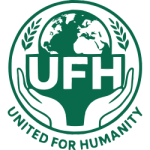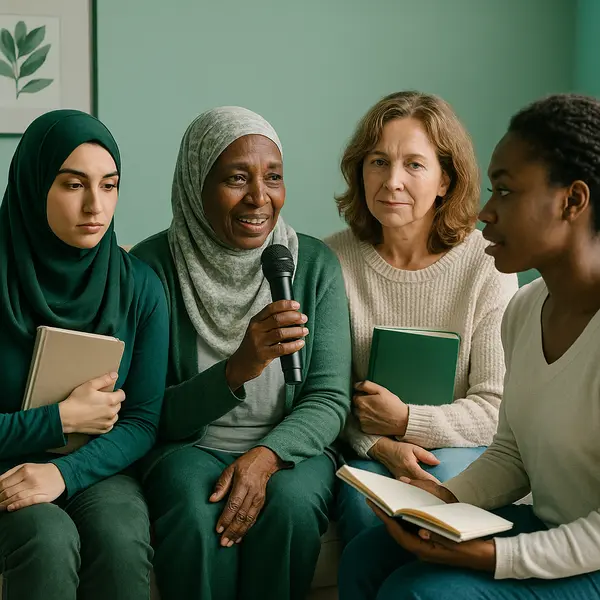Every year, countless women around the globe face persecution, gender-based violence, and life-threatening situations simply because of who they are. For many, the journey to a safe haven begins with uncertainty, fear, and the daunting prospect of rebuilding from scratch. Thanks to UFH’s Women-at-Risk Visa program, these courageous individuals find not only refuge but also a pathway to empowerment and self-determination.
In this in-depth feature, we follow the journeys of three remarkable women—Amina, Natalia, and Fatou—each of whom overcame immense hardship and, with UFH’s holistic support, transformed her life and those of her loved ones.
1. Amina: From Shadows to Sunshine
Background and Peril
Amina (name changed for privacy) grew up in a region where speaking out against gender-based injustices was considered taboo. When she publicly denounced local authorities’ mistreatment of women, she faced escalating threats: her home was set ablaze, her family received anonymous death threats, and she herself was beaten on multiple occasions.
“I felt invisible—like my voice didn’t matter. Every day was a battle for survival.”
A Desperate Flight
With her young daughter clinging to her side, Amina slipped across remote border crossings under the cover of darkness. Relying on meager savings and the kindness of strangers, she navigated checkpoints and bribes until, finally, she contacted UFH’s Emergency Rescue hotline. Within 48 hours, our crisis team had:
Arranged temporary shelter in a safe house
Coordinated medical attention for her injuries
Connected her with pro bono legal counsel
The Resettlement Journey
Once her Women-at-Risk Visa was approved, UFH’s Social Integration unit took over:
Housing & Essentials — Secured a furnished apartment near public transport.
Education for Her Daughter — Enrolled her daughter in a local primary school, coordinating tutoring for language acquisition.
Trauma-Informed Therapy — Partnered with a licensed psychologist specializing in refugee mental health.
“For the first time in years, I woke up without trembling. I could dream again.”
Today, Amina volunteers as a peer mentor, guiding newly arrived women through cultural orientation workshops and skill-building sessions. Her story illustrates how safe refuge, when paired with compassionate support, can reignite the spark of hope.
2. Natalia: Reframing Displacement into Purpose
A Career Derailed
Natalia was a tenured literature professor whose life of academic achievement crumbled when conflict engulfed her city. As schools closed and public order collapsed, women like her became targets for exploitation. Determined to protect her elderly mother and younger brother, Natalia sought any legal avenue to escape.
“I went from lecturing in halls of ivy to fleeing under mortar fire. It was surreal.”
Navigating Complex Legal Terrain
UFH’s Legal Immigration team meticulously crafted her visa application:
Document Verification — Obtained affidavits from former colleagues and community leaders.
Evidence Compilation — Translated and certified threats logged in her personal journal.
Consular Liaison — Advocated directly with embassy officials to expedite her case.
“They treated me as a collaborator, not just an applicant. That made all the difference.”
Rebuilding Through Education
Upon arrival, Natalia aspired to regain her academic footing. UFH’s Educational Support department offered:
Digital Literacy Workshops — Training in virtual teaching platforms and multimedia course design.
Credential Recognition Assistance — Guidance through the host country’s certification process.
Mentorship Pairing — Partnered her with a tenured professor at a local university.
Within months, Natalia was hired to develop a bilingual literature curriculum for refugee youth. She now leads a reading circle that fosters cross-cultural exchange and empowers students to tell their own stories.
“Education saved my spirit—and now I give that gift forward.”
3. Fatou: Sewing New Beginnings
Life in the Aftermath
Fatou’s homeland was devastated by a catastrophic flood that destroyed infrastructure and displaced thousands. As a single mother of three, she faced an impossible choice: stay and risk her family’s lives, or embark on a journey into the unknown.
“Water took our home, our livelihoods, but it could not drown my will to fight for my children.”
Bridging Gaps with Remote Support
With limited internet access, Fatou relied on community volunteers to send her application materials to UFH. Our remote team:
Arranged for translation of vital records
Coordinated with local interpreters to ensure accurate communication
Stayed in daily contact, offering encouragement and practical advice
“Every message I received felt like a lifeline across thousands of miles.”
Empowerment Through Enterprise
Once resettled, Fatou tapped into UFH’s Vocational Training and Micro-Grant program:
Tailoring Courses — Intensive classes in garment design, pattern-making, and small-business management.
Micro-Grant Funding — Seed capital to purchase a professional sewing machine and initial materials.
Business Coaching — Quarterly check-ins with an entrepreneurship advisor.
Armed with these resources, Fatou launched “Stitches of Hope,” a collective workshop employing other refugee women. Their handcrafted garments now supply local boutiques and online marketplaces, offering sustainable income and a renewed sense of purpose.
“Every stitch tells a story of survival—and now those stories are stitched into beautiful dresses.”
UFH’s Holistic Approach
While each journey is distinct, several pillars unite our work under the Women-at-Risk Visa program:
Legal Advocacy & Expertise
We navigate complex immigration systems to minimize delays and maximize approval rates.Psychosocial & Community Support
Trauma-informed care, group counseling, and peer-network events foster resilience and belonging.Skills Development & Economic Empowerment
From digital literacy to vocational grants, we equip women with tools for financial independence.Ongoing Mentorship & Integration
Alumni networks, local partnerships, and volunteer mentors ensure long-term success.
How You Can Be Part of the Change
The Women-at-Risk Visa program relies on generous supporters and dedicated volunteers. Here’s how you can help:
Donate Today
Your gift funds legal fees, language classes, therapy sessions, and micro-grants.Volunteer Your Expertise
Join our mentorship program as a language tutor, business coach, or integration guide.Raise Awareness
Share these stories on social media, at community events, and within your professional networks.
Visit our dedicated page for more information: UFH.org/visas/women-at-risk
Concluding Reflections
The voices of Amina, Natalia, and Fatou are testaments to the extraordinary courage of women who refuse to be defined by their circumstances. At UFH, we are honored to walk alongside them—providing not just sanctuary, but the resources, respect, and relationships they need to chart their own courses.
In every victory, no matter how modest, we see the reflection of what’s possible when compassion meets action. Together, we can amplify these voices of resilience and ensure that more women at risk not only survive—but thrive.
End of article.


